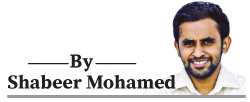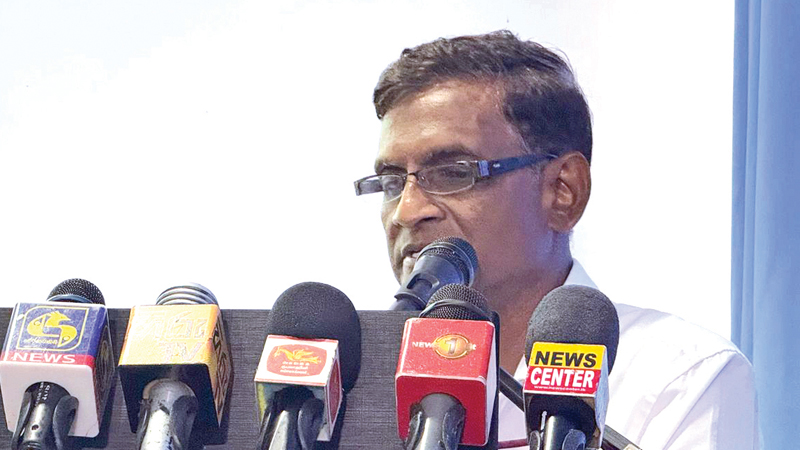 The Coalition for Educational Development, Sri Lanka, has unveiled a ground-breaking analytical report on the country’s education policies. The report, titled ‘Analysis of Education Policies, Policy Frameworks, and Reform Initiatives in Sri Lanka: Strength, Relevance, and Gaps in Education Policies and Policymaking’, has been compiled by education policy expert Dr. Jayantha Balasooriya. The launch took place on March 11, 2025, at the Sri Lanka Foundation Institute. Dr. Balasooriya and a senior lecturer at the Department of English, University of Kelaniya, Dr. Prabha Manurathne spoke at the launch.
The Coalition for Educational Development, Sri Lanka, has unveiled a ground-breaking analytical report on the country’s education policies. The report, titled ‘Analysis of Education Policies, Policy Frameworks, and Reform Initiatives in Sri Lanka: Strength, Relevance, and Gaps in Education Policies and Policymaking’, has been compiled by education policy expert Dr. Jayantha Balasooriya. The launch took place on March 11, 2025, at the Sri Lanka Foundation Institute. Dr. Balasooriya and a senior lecturer at the Department of English, University of Kelaniya, Dr. Prabha Manurathne spoke at the launch.
In his presentation, Dr. Balasooriya said that education policy and reform should not be isolated from the broader social reforms. He said that any policy or reform in the education sector cannot be implemented overnight and requires careful planning, adequate resources and necessary facilities to ensure effectiveness.
He highlighted several critical factors that influence education policy, stressing the importance of wider participation at national, sub-national and grassroots levels. Policies should be informed by evidence to ensure they are both relevant and impactful. He said that several challenges in the current policymaking process, including the lack of policy consultation, poor communication of policy decisions and the influence of party politics were creating contradictions between policymakers and the politicians and the lack of genuine political commitment to long-term education policy changes, which makes implementation inconsistent.
Dr. Balasooriya outlined three fundamental principles that should guide education policy proposals—inclusiveness, equity and efficiency and quality. He also emphasized the need for policy implementation to align with broader social development goals, stating that structural changes and reforms in education should not happen in isolation but must be designed to address wider social issues, such as youth unrest and poverty reduction.
Demand-driven policies
He categorised education policies into different types, adding that demand-driven policies are shaped by social needs, economic trends and public demand, while supply-driven policies are initiated by the authorities or political interests, such as the introduction of free school uniforms in 1993 and the distribution of free textbooks. Emerging policies respond to evolving concerns such as disaster management, peace education and child labour laws, whereas operational policies focus on practical aspects such as school financing, teacher deployment, school admissions and university enrollment.
Internationally agreed goals align with global frameworks such as the Millennium Development Goals (MDGs), Education for All (EFA), Sustainable Development Goals (SDGs) and various child protection Charters. Concluding his presentation, Dr. Balasooriya stressed the importance of a long-term vision, and said that education policy must be dynamic, evolving in response to national needs and global standards. He said that sustainable reforms require commitment beyond political cycles to truly transform the education system.
Senior Lecturer at the University of Kelaniya and Director of the Centre for Gender Equity and Equality at the University Grants Commission, Dr. Prabha Manurathne provided a critical analysis of governance issues in education. She said that while many Ministries and Government institutions spend significant time researching and formulating policies, the real challenge lies in the implementation.
She said that even when progressive and democratic education policies are developed, there remains a crucial gap in translating them into action. Highlighting systemic failures within Sri Lanka’s education system, she criticised the lack of student engagement in curriculum development, saying that students are never consulted about their educational needs.
She said that parental and societal expectations for education are tied to a rigid and ineffective merit-based system, which has become a burdensome structure. The entire examination system, including the Grade 5 scholarship examination, the Ordinary Level examination and the Advanced Level examination, has turned into a mechanism that fails students rather than supports them.
Rigid intellectual conditioning
As an academic, Dr. Manurathne expressed deep concerns about the rigid intellectual conditioning that students undergo throughout their school career. She said that in universities, the biggest challenge was not teaching but unlearning what has already been taught. For the first semester, she spends time helping students unlearn the restrictive thought patterns they developed in school.
She said that after 13 years of education, many students struggle to express independent thoughts because they have never been asked what they think. She emphasized that this issue needs to be addressed not just among students but also among teachers. Urging academics to take a more active role in teacher training, she called for at least one guest lecturer at Teacher Training Colleges to help reshape the educational mindset.
Dr. Manurathne also raised concerns about education funding and resource allocation, questioning as to who was responsible for financing education reforms if recommendations state that six percent of the GDP should be allocated for Education. Her review underscored the fundamental governance challenges in Sri Lanka’s education sector, emphasizing the need for real action beyond policy discussions. She called for a shift towards a more student-centred, inclusive approach to learning.
Addressing longstanding challenges
The launch of this report marks an important step towards addressing the longstanding challenges in Sri Lanka’s education system. By critically analysing past policy failures and highlighting the need for inclusive and well-structured reforms, the study provides valuable insights to shape the future of education in the country. With the participation of key stakeholders, including the Ministry of Education and the National Education Commission, this initiative aims to foster a more effective and sustainable approach to education policy making.









